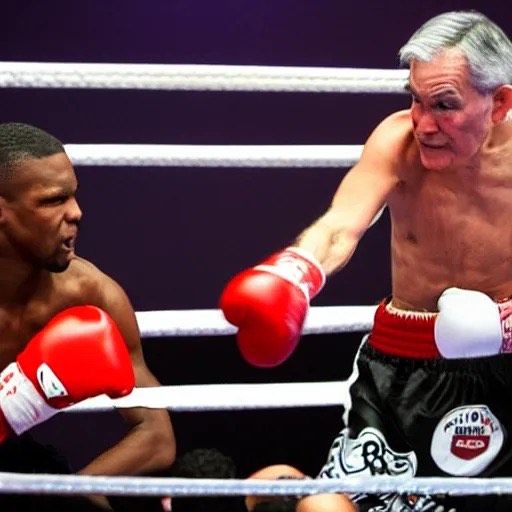MARKET PERSPECTIVE
By J Mulraj
Dec 2-8, 2023
Huge global pool of money in financial assets keeps markets propped
In the right corner is J. Powell, Chairman of the US Federal Reserve, wanting to pummel down inflation, with higher-for-longer interest rates, to a target of 2-3%. Powell manages the Federal Reserve, which acts as a Central Bank for a $23 trillion economy, thus wielding a pretty large hammer.
In the left corner are global investors. As per this study by consulting firm McKinsey, global financial assets held by financial corporations were $ 510 trillion! A similar sum was invested in financial assets, globally, by households, Governments and non financial corporations! That adds up to $ 1020 trillion, a wrecking ball, compared to the hammer wielded by the guy in the right corner!
The guy in the left corner is gung-ho about the US economy. US inflation today is 3.2%, unemployment is low, and US GDP is growing. Yes, there are problems, in all realms, geopolitical, political, and economic, but the guy on the left thinks they can be managed, and that innovations will drive economic growth, forward.
The guy on the left wants, and believes that, interest rates will be lower.
The guy on the right is cautious, and won’t lower them until inflation stays lower for longer. So we should look at the factors which could keep inflation higher, and those which could bring it down.
Factors which could keep inflation high:
- US demographics – Baby boomers, the generation of people born after WW II, are retiring. This generation created (and spent) wealth, boosting US GDP growth, for which consumption accounts for 70%. As they retire, their wealth moves from the more volatile equity markets to the relative safety of fixed income markets. This has various consequences. It will drive up cost of capital, and reduce funding to the venture capital funded start up market, one that generates innovation. After baby boomers, the next demographic layer is Gen X, those born between 1960-80. In numbers Gen X are smaller than boomers, which means that there will be wage inflation. Wage inflation has also been the result of a UAW strike at three major traditional automakers, GM, Ford and Stellantis, which resulted in a 33% wage hike. Higher costs for capital and for labour will lead to higher shut downs, especially of small and medium businesses, and cause higher inflation. Shut downs are already happening in cities like San Francisco, resulting in high crime rates and homelessness.
- Trade wars and sanctions– The theory of competitive advantage maintained that if nations focused on areas in which they had a competitive edge over others, then collectively everyone would benefit. For several years global inflation was kept low as a lot of manufacture was outsourced to China. Then trade wars began, between US and China, the former complaining of its huge trade deficit with the latter, and imposing punitive tariffs to seek to correct it. The wolf warrior diplomacy followed by China, especially against its neighbors, was its way of displaying its regional hegemony. An example was an arbitrary 9 (now10) dash line it drew, claiming sovereignty over almost entirely, the South China Sea. This did not endear itself with its neighbors, especially after China’s arbitrary line was denied by an international court, under UNCLOS (United Nations Convention on the Law of the Sea). China disdainfully ignores international conventions. As a result, several countries are trying to de-risk supply chains by seeking alternative locations. Apple, eg, is sourcing iPhones from India. Until new supply chains settle in, higher inflation will prevail.
- Geopolitical tension: There are several hotspots around the world, which serve to drive up the oil price, and the cost of energy. Witness the inflation in Europe after cheap Russian oil and gas was sanctioned by the EU, a classic example of cutting the nose to spite the face! This resulted in high inflation, which led to high interest rates to try and curb it, which, in turn, led to closures of businesses unable to sustain high rates. Crude oil prices have risen because of geopolitics, and because of Biden’s policies discouraging shale oil production.
Factors that can curtail inflation:
Benefits of technological innovation: In the field of medicine, a new technology called CRISPR is used by research scientists to selectively modify the DNA of living organisms. It can be used for treating rare conditions, like sickle cell anemia, where treatment costs are high due to a small market size. CRISPR helps reduce medical costs. In the US budget health (15% of expenditure) and Medicare (5%) are the 4th and 6th largest items of expense. Similarly, though a few years away, the technology of nuclear fusion will bring down energy costs (and dependency on dirty fossil fuel) by providing an unlimited source of clean, low cost, efficient energy. The technology of autonomous vehicles, combined with ride sharing, will bring down the cost of transportation significantly. San Francisco has permitted Waymo, a ride hailing platform, to operate its autonomous vehicles. In the manufacturing field, technologies such as 3D printing and AI will reduce costs and improve productivity, thus curbing inflation. In India, the technology of green hydrogen, which India’s A team ( Ambani and Adani) are aggressively investing in, has the potential, according to R K Singh, minister for New and Renewable Energy, to significantly reduce use of fossil fuels. This will bring down cost of importing crude oil, hence inflation.
An easing of political tensions: An end to the totally senseless, and completely avoidable, Russia-Ukraine conflict seems within reach, largely because the collective west has run out of money, weapons to gift, and patience. If the collective west has the sense to calm down an angry bear and patch up with Putin, weaning him away from China, just perhaps the supply of Russian energy can be restored to Europe. That would be hugely inflation reducing. Which simply proves that a big contributory factor for inflation is the foolishness of political leaders thumping their chest with jingoistic war cries.
Investors need to decide whom they’d like to bet on – the guy in the left corner, the global investors who have over $1000 trillion in financial assets, and thus the clout to dictate things (global GDP is $ 105 trillion) or the guy on the right, with the full force of US, the world’s largest economy, and the largest central bank in the world, empowering him with the clout of Government.
Rating agency Moody’s is betting on the guy in the right corner. See this video https://youtu.be/e7EfY6nkh9Q?si=GrbR92tqWgWkbnpz at around 3:00. So does hedge fund manager Ray Dalio (https://youtu.be/mKO4EBid92s?si=ZcM_Ogtx-gIyQWFb) who believes inflation will be around 3.5% and, adding 1.5% to give investors a real yield, interest rates should be at at least 5%.
Geopolitics can throw up a black swan event. The strangest of conflict situations has been thrown up by impoverished Venezuela (it has the world’s largest oil reserves but is unable, due to US sanctions, to exploit them), threatening war on neighboring Guyana! The more serious situations, though, are in the Israel-Hamas conflict in the Middle East, (rockets fired from Gaza almost hit a nuclear storage facility in Israel last week) and in Taiwan. China may resort to a blockade of Taiwan if, in the coming elections, the party more favorably inclined towards it, is not elected. A blockade can escalate into a wider war.
This, at a time when the Republicans in the House are seeking to impeach Biden, on corruption charges. Xi Jinping might take this as an opportunity to try his misadventure!
Last week the BSE Sensex ended at 69825, up 2344 points. It’s at a new all time high. The guy in the left corner is going gung-ho.
So interest rate policies of central banks, and geopolitical black swan events will determine the path stock markets take.
Picture Source: https://search.krea.ai/prompt/e37c03fe-fb77-4968-a050-6c41a124101d
Comments may be sent to jmulraj@asiaconverge.com










































COMMENTS